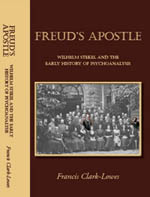More than two years have passed since Part 4 of these articles appeared in The Runner. So let’s begin with a summary of my story so far. I was a war-baby, and grew up in what I called the ‘exciting afterglow’ of the world conflict. Shrewsbury public school, where my father taught chemistry, gave me a hankering for close communities like the North Laine. At the age of ten my father became headmaster of the prep-school in Northumberland I had been sent to when I was just eight. My rapture at this extraordinary turn of events was, however, short-lived.
The first day of the new regime I was enjoying sliding a bicycle combination lock along the dormitory floor. There was such a wide gap at the bottom of the door (no doubt to assist draughts) that it could pass underneath. Suddenly my father burst in, determined to assert his authority from the start, and demanded to know who was responsible for the missile which had just hit his foot. There was a deathly silence during which all eyes were fixed on me. How would the new head treat his own son, they questioned? At last I found my voice and owned up. Whatever punishment I received pales into insignicance compared with that awful couple of minutes.
But so it went on. My school mates, plus at least one member of staff, assumed that I and my younger brother were privileged; for his part my father did his best to prove that we weren’t. Indeed he once told me that we were in the same ‘difficult situation’ which my mother and her brothers had suffered under my grandfather’s headmastership. I suppose it helped to have this acknowledged.
But it wasn’t all doom and gloom. I was able to resume my vegetarian diet, which had been interrupted for the year-and-a-half before my father arrived. We loved exploring the castle and its extensive grounds during the holidays. We made dens in the dungeons under the eyes of ghostly white statues, we built tree-houses (one of which caught fire spectacularly), we risked our necks jumping along the battlements, and we built a Hornby OO model railway which went right round an outhouse room, and had a spur which forked off through the window and along a plank to a ventilation shaft.
I don’t think I really passed the Common Entrance exam. I wasn’t clever, and in any case I became absorbed at that time in making a map of the railways of the north. But Shrewsbury looked kindly on the son of an ex-teacher, and I returned to my old home as a boarder in 1958. What a strange feeling! The staff had barely changed since we had left as a family, and so I was surrounded by friends of my parents. On the rare occasions my mother and father came to visit they were largely preoccupied with socialising – or so it seemed to me.
And then there were all the sights and sounds of my childhood. The chiming of the school clock on the old workhouse building conjured up vivid memories, distant steam engines still puffed, whistled and shunted, and the red aviation warning light blinked as always atop the Wrekin. And yet I felt an alien in this familiar environment. I hated the fagging system which made me a slave to older boys, I rebelled against the corps (military training), I half-starved because my housemaster was determined to cure me of my vegetarianism and I was ashamed to admit to my parents’ friends that I was in the third form. Starting in this remedial class I struggled on to O level in the bottom streams. The general consensus was by then that I should call it a day.
Fantasy is the great healer of unhappiness, and I indulged myself to the full. My fascination with railways knew no bounds, and fuelled by romantic fiction I cycled with friends to surrounding girls’ schools dreaming of love. Needless to say nothing ever actually happened on the last front – at least not with the girls! But my interest in railways led to a projected career as an electrical engineer … of which more next time.

